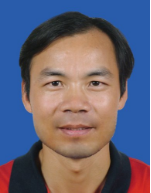Summary of the project
The marine carbon cycle is influenced by anthropogenic activities, affecting global climate change and casting a significant impact on ecosystems. However, the sensitivity of marine biogeochemical cycles to climate change remains unclear, especially for key processes which influence the long-term health of marine ecosystems. The biological pump (BP) and recently proposed microbial carbon pump (MCP) are major mechanisms for biological carbon sequestration in the ocean. Understanding the dynamics of the MCP in conjunction with the BP, over geological timescales, would help to predict future climate trends.Through focusing on the interaction of MCP and BP, the coupling of carbon, nitrogen and sulphur cycles, and the integration and comparison of modern days with critical periods of Earth history, the project aims to decipher the mechanisms of marine carbon storage, biogeochemical processes in response to climate change and anthropogenic activities, and their impacts on ecosystems. Four research themes focused on the South China Sea and the Bohai Sea of China will include: a) the interaction between MCP and BP; b) the elemental biogeochemical cycles across sediment-water interface (and their contribution to carbon storage); c) the variation of regional carbon pool in response to global climate change, and anthropogenic activities and; d) the coupled carbon, nitrogen and sulphur cycles in response to deep time global change and their effects on marine ecosystems. This research tries to fill the critical gap between short-term processes in modern oceans and the long-term effects through ancient times. The goal of the project is to provide a comprehensive understanding of the responses of marine carbon pool to global climate change on multiple spatiotemporal scales, and to identify the naturally or anthropogenically-driven ocean acidification processes, key processes of carbon storage, and their impact on marine ecosystems. This project will build up a platform to bring together scientists from the marine-, life- and Earth-sciences, including twenty two scientists and over thirty students from seven state key laboratories of six universities or institutes in China for the coming five years.
The themes of this project are:
- The interaction between the microbial carbon pump (MCP) and biological pump (BP) and its contribution to marine carbon storage. Key issues include 1) the time sequence of observation for biological pump, the controlling physical-chemical and biological processes and organic carbon fluxes to the deep oceans, 2) chemical and biological mechanisms for the interaction of MCP with BP, and 3) coupled physical and biogeochemical process modelling based on ROMS-CoSiNE, to evaluate the interaction between the MCP and BP.
- The effect of the carbon, nitrogen and sulphur cycles across the sediment-water interface and its contribution to marine carbon storage. Key issues include 1) sedimentary organic carbon variation in different environments, 2) microbial mediation in coupling carbon, nitrogen and sulphur cycles during sedimentation, and 3) models and patterns of elemental biogeochemical cycles across the sediment-water interface.
- The regional carbon pool in response to recent global climate change. Seasonal acidification in the Bohai Sea in East China is particularly targeted. Key issues include 1) the interaction between the MCP and BP under acidification scenarios and their response to global change, 2) the coupled carbon, nitrogen and sulphur cycles under acidification scenario, 3) the trend of ocean acidification with increasing anthropogenic influence.
- The coupling of carbon, nitrogen and sulphur cycles in response to deep-time global change. Three time intervals are selected to decipher the relationship between climate, biogeochemical cycles, oceanic chemistry and ecosystems; the last deglaciation, the Permian-Triassic boundary at 252 million years ago when the most severe mass extinction occurred in association with the sharp increase of temperature, and the Neoproterozoic age of 630 million years ago when the snowball Earth episode terminated. Key issues include 1) the coupling of carbon, nitrogen and sulphur cycles, 2) the microbial contribution to changes in oceanic chemistry, and 3) the response of elemental biogeochemistry cycles to global changes and their impact on ecosystems.
Area of study
South China Sea, and Bohai Sea
Time Table for activities
July 2016 – May 2021
Contact

Dr. Shucheng Xie